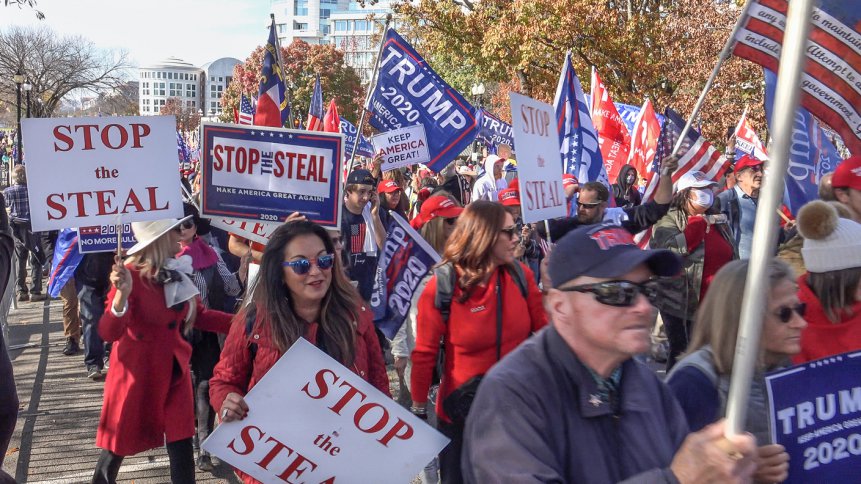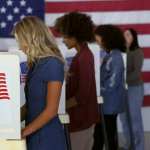Social Media Platforms Act on Midterm Misinformation – But Is It Enough?

Social media has played a huge role in recent political history, from the rage-tweets of Donald Trump, to the random fact-freedom of Facebook narratives of a stolen election in 2020. In particular though, Google – which it’s not an exaggeration to call the world’s search engine – and Youtube, the address-the-world platform for everyone from home bakers to stand-up comedians to violent incels about to go on a shooting spree – have played a role in delivering biased, fact-free, click-heavy content about elections straight onto people’s computer screens and smartphones.
With the US midterm elections in November fast approaching, Google has announced how it will prepare for the tidal wave of vacuous, other-dimension misinformation that it, along with anyone who paid attention in 2020, is expecting to come ahead of the elections themselves.
Step 1
Step 1 is to launch a new tool to highlight both local and regional journalism in the next few weeks, allowing local outfits a larger presence and a higher profile than some dedicatedly partisan national platforms and campaigns in Google searches until the midterms. That should mean that at the very least, you have a stronger idea of the issues affecting your community, giving you a firmer understanding of what you’re voting on, and where each of the candidates stand on the issues that matter to you. Plus, if you search on Google (in either English or Spanish) for “how to vote,” Google said its search engine will return you highlighted information from state election officials – which will be concise, accurate and timely, meaning you won’t be conned by false information into not complying with voting regulations, and so losing your opportunity to vote.
It’s hoped that by providing this kind of clear, reliable information, the tech giant can help combat what’s known as microtargeting, which has been used in previous elections (including the 2020 presidential election), to trick minority voters into not casting their vote. The availability of the same information in Spanish is intended to bring in Latino voters, who have previously been lied to by bad actors about their ability to vote, and how to do it.
The YouTube Measures
YouTube, one of the most-watched social media platforms, has said it will highlight mainstream news sources, and add labels beneath video content (again in both English and Spanish), giving accurate election information. It added that it would be tackling algorithmic issues that had previously recommended “harmful election misinformation” to particular groups of would-be voters. YouTube has begun removing midterm-related videos that promote the ludicrous and fact-free narrative of the stolen 2020 election. “This includes videos that violated our election integrity policy by claiming widespread fraud, errors, or glitches occurred in the 2020 U.S. presidential election, or alleging the election was stolen or rigged,” said a YouTube blog post.
You’re Just Wrong
This is not, as bad actors would have the American public believe, the result of some elite plan to silence the truth and consolidate the “steal.”
This is a move to promote fact-based reality.
These measures are also designed in some degree to rehabilitate Big Tech – and especially social media – to the American voting public after its relatively ungoverned use in previous elections resulted in potential voters being either disincentivized, given false information (and therefore robbed of their opportunity to vote), or in some cases being bullied into thinking they had no right to vote.
This, incidentally, is not the widely-trumpeted “voter fraud” that fuels former President Trump’s entirely false narrative of a stolen election in 2020. That kind of “voter fraud” does not actually exist in numerically significant amounts, and any number of investigators and courts have proven as much. The issue being addressed here is right-wing misinformation to remove the “not-we” from the voting pool.
Self-Interest In Full Camouflage
It’s entirely arguable though that the moves from Google are not motivated by public-spirited determination to mend its houses with regard to the impact it has on elections. Rather, the impact of the November midterms could see a shake-up that would address how the platforms are regulated from outside, so any attempt to demonstrate that Big Tech can regulate itself, at least in terms of affecting the make-up of American democratic institutions, have got to be a positive move.
The moves to deliver solid, verifiable election comes as some of the people responsible for spreading and perpetuating the 2020 “stolen election” lie are themselves standing for election, hoping to provide a basis for a second Trump run in 2024 (even as the former President faces groundbreaking investigation by the FBI). Arguably, delivering fact-based information to the electorate has never been more important than it is in these midterms.
While Google and YouTube are stepping up their promotion of fact-based election information though, disinformation experts are already warning that moves from other platforms like Twitter, TikTok, and Facebook are insufficient – especially as bad actors and extremists will be looking to foul the political information environment in new, dramatic ways.
Other Platforms
Twitter has announced it will fact-check posts and police midterm-based tweets “that undermine public confidence in the official results,” in line with its civic integrity policy, while Meta, the firm that owns Facebook, said its policy will be to remove false claims as to who can vote and how, and any calls for election-related violence, but that it will not remove baseless claims of rigged or fraudulent elections. Twitter will maintain the level of labelling it used during the 2020 election and afterward, in terms of spreading false narratives. Facebook on the other hand will use less labelling than it did in 2020, after user feedback suggested those labels were “overused.”
This will be the first election in which TikTok is likely to play a relatively large part in terms of information-sharing, and it has pledged to create an “election center” – delivering authoritative information in 45 languages.
Whether these moves are enough to combat the spread of democracy-endangering nonsense by extremists online (including some of the advocates of the Stop The Steal narratives who are standing for election) will only be seen with hindsight. Experts remain less than entirely convinced, but any improvements to the previously relatively wild environment of social media can only be welcome.










